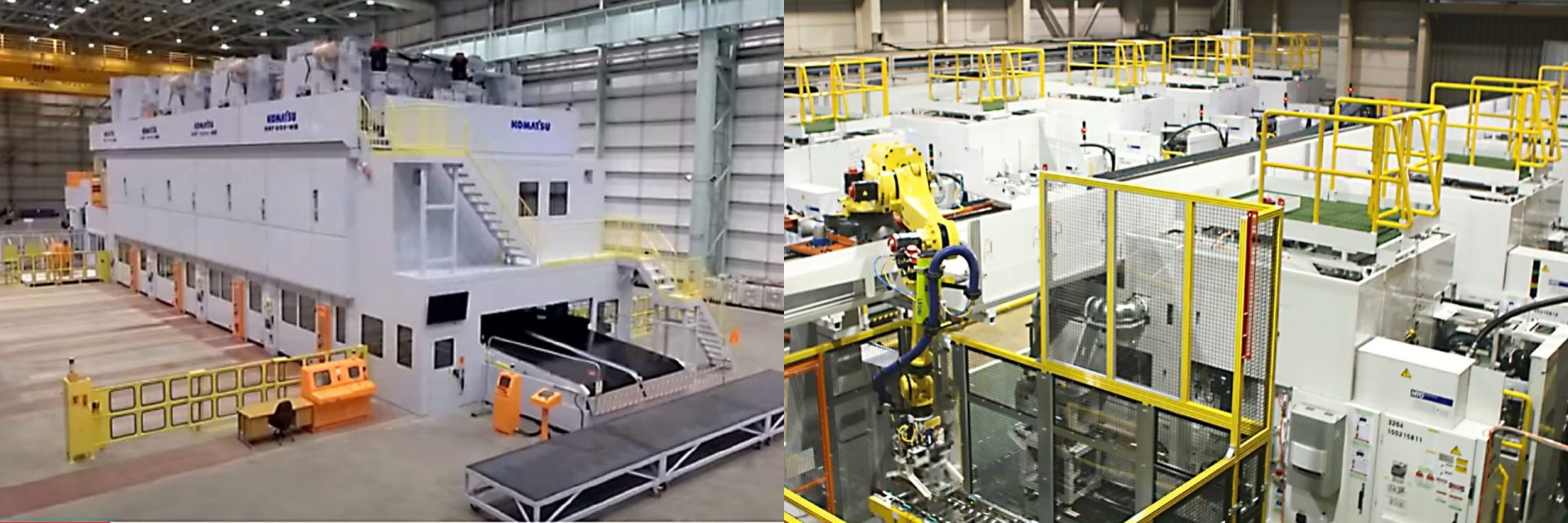Table of Contents
This article explores the latest advancements in industrial machinery, their transformative impacts on various sectors, highlighting their daily revolution.
1. The New Era of Automation Technology
Automation technology is revolutionizing industrial machinery by enabling efficiency and precision through advanced sensors and AI. Robotics, particularly collaborative robots, are being upgraded to enhance productivity and safety. Automation reduces human error and operational costs, while AI allows for predictive maintenance, minimizing downtime and maintenance costs. Automation is crucial for achieving higher output and reduced lead times.
2. Advancements in CNC Machining
CNC machining has become a mainstream manufacturing tool, offering precision, efficiency, and versatility. Multi-axis machining centers reduce manual intervention and improve precision in complex geometry parts. Smarter software interprets design files, automates tool changes, and optimizes cutting paths. Advancements in material science expand the range of materials CNC machines can work with, including traditional metals, composites, and polymers. User-friendly interfaces enable operators with less training to achieve high-quality outcomes. CNC machining remains essential in modern manufacturing for customized and intricate components.
3. The Role of Additive Manufacturing
Additive manufacturing, often known as 3D printing, represents a paradigm shift in how products are designed and manufactured. This technology builds objects layer by layer from digital models, facilitating the creation of complex structures that would be impossible or too costly to produce with traditional methods. One of the key advantages of additive manufacturing is its ability to produce highly customized items without the need for expensive molds or tooling. This is particularly beneficial for industries such as aerospace, healthcare, and automotive, where there is a growing demand for bespoke components. Recent advancements in additive manufacturing include improvements in speed, material diversity, and print resolution. High-performance materials such as metal alloys and bio-compatible plastics have broadened the applications of this technology. Additionally, advancements in software and hardware integration have enhanced the reliability and precision of 3D printers, making them viable for mass production. As additive manufacturing continues to evolve, it holds the potential to revolutionize supply chains and product development processes across various sectors.
4. Eco-Friendly Industrial Machinery
Sustainability has become a critical consideration in today&8217;s industrial landscape. Eco-friendly industrial machinery is designed to minimize environmental impact through energy efficiency, waste reduction, and the use of sustainable materials. Many modern machines are engineered to consume less energy without compromising performance. Innovations such as regenerative braking systems in heavy equipment and energy-efficient motors in manufacturing machines are prime examples. Furthermore, the adoption of recyclable and biodegradable materials in machine construction contributes to reducing the ecological footprint. Advances in pollution control technologies, such as advanced filtration systems and emission-reduction technologies, help industrial machines comply with stringent environmental regulations. Additionally, companies are now focusing on developing machinery that supports circular economy principles, enabling products to be reused, refurbished, or recycled at the end of their lifecycle. By incorporating eco-friendly designs, industries are not only mitigating their environmental impact but also achieving cost savings through improved resource efficiency and compliance with global sustainability standards.
5. Smart Factories and the Internet of Things (IoT)
The concept of smart factories is transforming manufacturing through the integration of the Internet of Things (IoT). IoT-enabled industrial machinery is interconnected, allowing for seamless communication between machines, operators, and systems. These smart factories utilize sensors and data analytics to monitor and optimize every aspect of the production process. For instance, IoT devices can track machine performance in real-time, predict maintenance needs, and identify potential bottlenecks, thereby reducing downtime and improving operational efficiency. The data collected from IoT devices also enables manufacturers to perform in-depth analysis, leading to better decision-making and strategic planning. Additionally, IoT facilitates remote monitoring and control, allowing operators to manage machinery and processes from anywhere in the world. This capability is especially valuable in large or geographically dispersed operations. As industries continue to digitize, smart factories represent a significant leap forward in achieving higher productivity, lower costs, and improved product quality.
Conclusion
The continuous advancements in industrial machinery are transforming tomorrow’s industries by enhancing efficiency, precision, and sustainability. Automation technology is reshaping workflows, making processes faster and less prone to errors. CNC machining offers unmatched precision and versatility, while additive manufacturing opens new horizons in customization and complexity. Eco-friendly machinery ensures that businesses can meet their operational goals without compromising the environment, and the rise of smart factories equipped with IoT technology is revolutionizing how manufacturers operate. These innovations collectively contribute to more responsive, adaptable, and resource-efficient industrial operations. As we progress further into the era of digital transformation, staying abreast of these technological developments will be crucial for industries aiming to maintain a competitive edge. Embracing these cutting-edge machinery advancements will not just transform operational capacities but will also pave the way for a more sustainable and innovative future.
